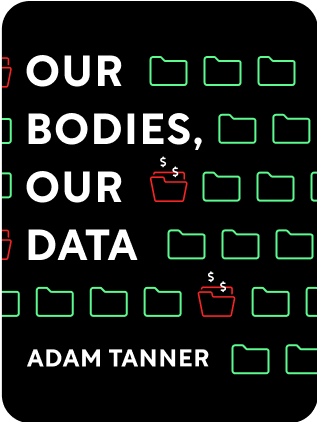

This article is an excerpt from the Shortform book guide to "Our Bodies, Our Data" by Adam Tanner. Shortform has the world's best summaries and analyses of books you should be reading.
Like this article? Sign up for a free trial here .
What does Our Bodies, Our Data say about your health information? Is your medical data being sold?
Our Bodies, Our Data is a useful survey of the medical data industry and its current worrisome capabilities. You’ll learn how the industry progressively sold more and more data, how patient records are compiled, and why there’s a market for this data.
Keep reading for an overview of Our Bodies, Our Data.
What Our Bodies, Our Data Reveals
Take a look at what the leading data broker, IQVIA (with a market cap of $20 billion), boasts to have:
- 530 million non-identified patient records
- 85% of global pharma sales tracked
- 400,000 sources of social media
- 15 million healthcare professionals
It’s no exaggeration to assume that all your health providers are reselling all your medical data to brokers like IQVIA.
According to Our Bodies, Our Data, nearly all information is sold—your disease diagnoses, what drugs you take for which conditions, what your most recent lab tests say, who your doctors are and when you saw them. Every vendor you interact with to get medical service is able to sell medical data. Reselling data is a high-margin business, and thus tantalizing for managers to add to their bottom line. Companies you interact with that sell your data include pharmacies, medical providers, and insurers.
The only restriction they have by HIPAA law is to remove identifying information like your name, address, and Social Security Number, instead creating a unique personal code for you.
According to Our Bodies, Our Data, the removal of your name from your record is little barrier. With so much data and this unique code, the data broker compiles data streams into a new patient record. Any new data the broker receives is associated with your personal record, making it more and more identifiable.
Simply picture your entire medical record owned by multiple third parties, just with your name and SSN replaced by a unique ID—this reflects reality.
The broker then resells your health record, along with those of hundreds of millions of other patients, for marketing, industry analysis, and research purposes. Note that in large part, the data buyers (eg pharma companies) are interested not in you as an individual but how you fit into general trends—what drugs you’re taking or switching to, what drugs your doctors are prescribing compared to other doctors, how disease prevalence varies by location.
But there is always a risk of a data leak, according to Our Bodies, Our Data. And given how much information your patient record has, it can likely quickly be matched back to you, especially if you have a rare condition or see a unique combination of doctors, or have any other public health-related information (for example, a Twitter post about seeing your doctor on a particular day, or public exercise data from health devices).In some sense, it’s already too late to opt out or take back your data. Data brokers say your records can’t be traced back to you, so even if you wanted to opt out, it claims to have no way to tell which data to delete. But at a minimum, you should be aware of the extent to which your data is shared and be sensitive to future opportunities to opt out, should you so choose.
Our Bodies, Our Data might be an eye-opener for you and many others when it comes to the truth about our medical data.

———End of Preview———
Like what you just read? Read the rest of the world's best book summary and analysis of Adam Tanner's "Our Bodies, Our Data" at Shortform .
Here's what you'll find in our full Our Bodies, Our Data summary :
- Why your medical data is no longer safe
- Who is selling your medical data and why
- Why it’s already too late to opt out or take back your data






